According to the International Journal of Gynecology and Obstetrics, approximately 26% of the global population menstruate, which means 800 million individuals are menstruating every day. Although menstruating affects such a large number of people, it’s only in recent years that the effect of menstrual products on the environment has been addressed. Historically these products are packaged and designed with an abundance of plastic. For example, tampons come wrapped in plastic, are encased in plastic applicators, and often feature plastic strings dangling from one end. Pads generate even more plastic waste because their leakproof base and absorbent design are powered with plastic-based synthetics.
The Life Cycle Initiative estimates 49 billion and 19 billion single-use menstrual products are consumed each year in the EU and US, respectively. In the US, 80% end up in landfills and in Europe it is 87%. The plastic components take up to 500 years to break down, potentially releasing toxic chemicals as they degrade and generating harmful microplastics that threaten the health of ecosystems. Furthermore, it’s common for single-use menstrual products to be disposed of incorrectly―the most common being flushed down the toilet. This blocks sewers and drains, can create flooding, pollute freshwater, and impact marine environments. When it comes to tackling these issues, brands have popped up offering sustainable and environmentally friendly alternatives to plastic-based menstrual products. BeautyMatter has put together a guide for the most innovative menstrual brands on the market.
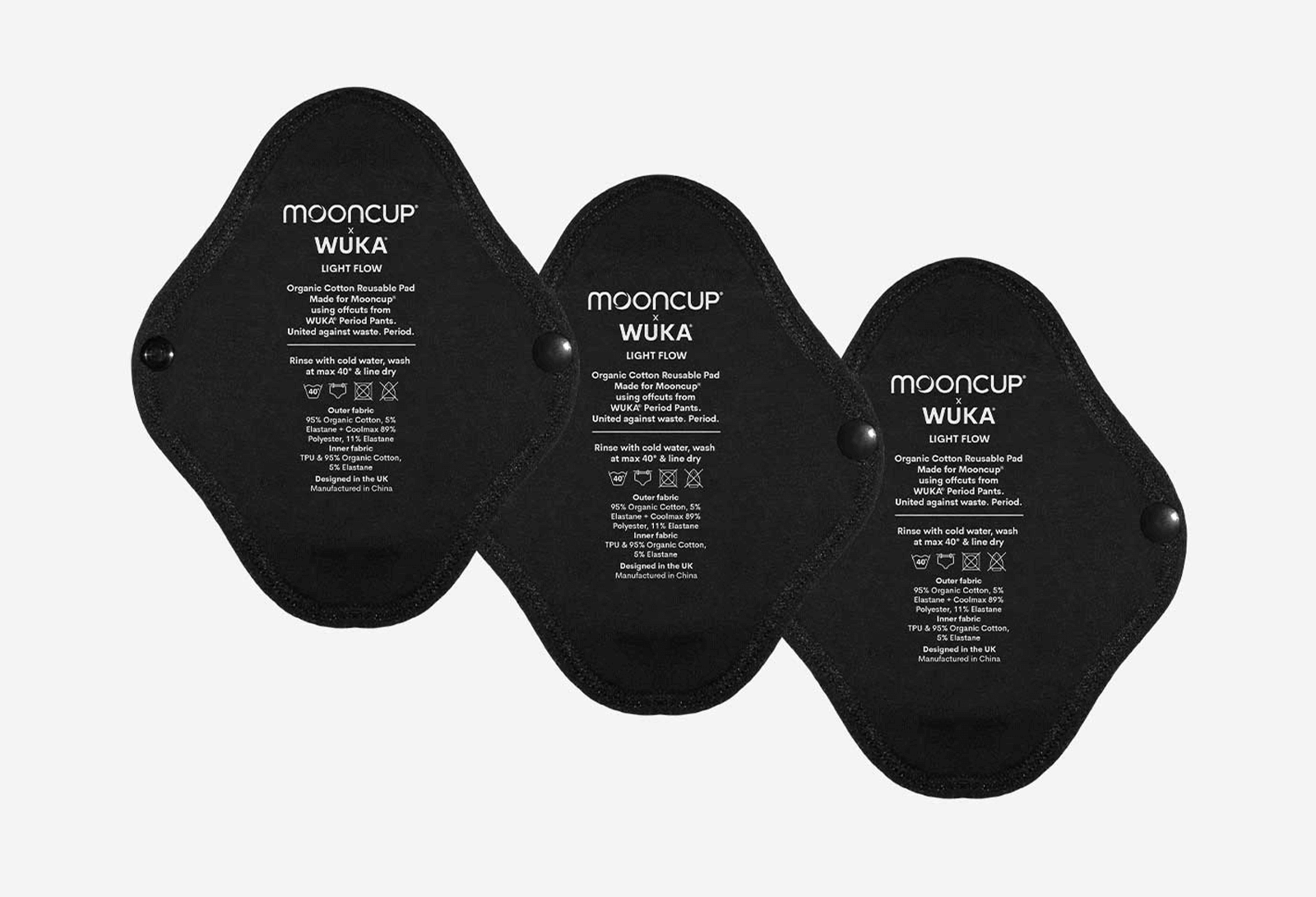
Wuka: Period-proof underwear hasn’t always had the best reputation with comparisons to nappies and notions of feeling unsanitary. However, Wuka puts these myths to bed with their sleek, chic black underwear. Available in a range of styles and cuts, Wuka uses materials such as organic cotton, tencel modal made from sustainable beech trees, and econyl made from plastic waste found in oceans. Tencel modal fibers are both compostable and biodegradable in marine, soil, home, and industrial environments. All underwear comes in one of three flow intensities: light (one tampon’s worth), medium (two to three tampons worth), and heavy (up to four tampons worth). Every pair of pants has an absorbent gusset made from multiple layers; the middle layer absorbs and locks in blood, and the outer layers absorb moisture to keep the consumer feeling dry. As well as providing sustainably made underwear, Wuka ensures all packaging is plastic-free, and every pair of period pants is wrapped in individual bags made from compostable cornstarch.
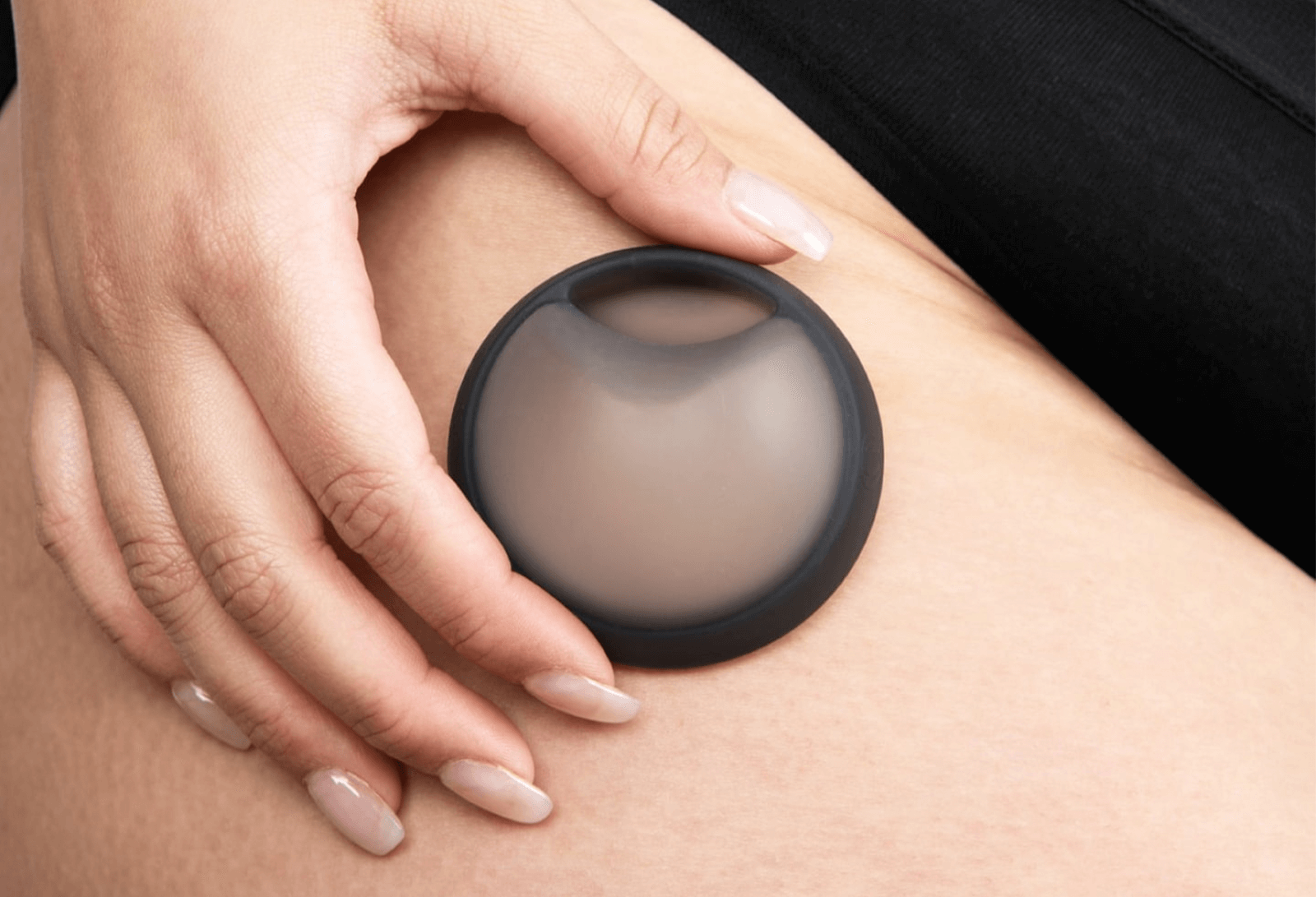
Cora: With the mantra “every body deserves comfort,” Cora designed a reusable period disc that is described as having a “barely-there feeling.” The disc sits at the base of the cervix and holds up to seven regular tampons of blood with up to 12 hours of leak protection. Cora emphasizes the ability to have non-messy sex while wearing the Perfect Fit Disc, preventing periods from getting in the way of regular lifestyles. The patented finger groove design featured on the disc simplifies insertion and removal, and the disc self-empties without removal when urinating. This reusable alternative is produced with medical-grade silicone and can be used for up to ten years before it needs replacing. For every Perfect Fit Disc that is purchased, one is donated to those unable to afford menstrual products.
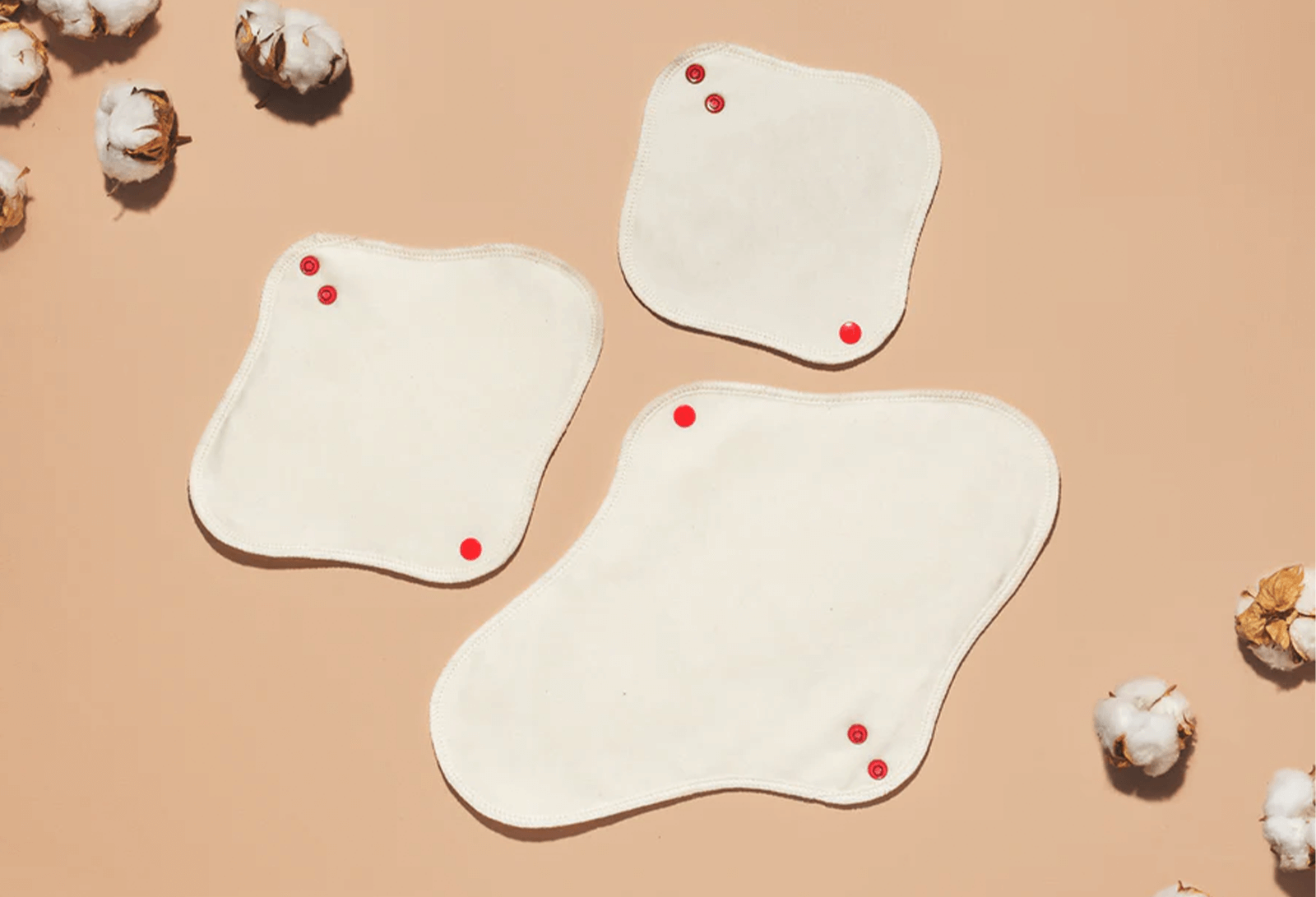
Lunette: This Scandinavian brand produces a range of reusable pads made from 100% organic cotton that feature red nickel-free poppers to secure the pad to underwear. The soft, comforting pads are available in three sizes: mini, medium, and maxi. The Mini is advised for those with vaginal discharge and a light flow; the Medium is designed for periods, postpartum, and bladder leakage; and the Maxi is ideal for heavy flows and nighttime use. A layer of bamboo viscose absorbs moisture to keep the wearer feeling dry and comfortable, while a waterproof coated PUL (polyester urethane laminate) fabric layer blocks moisture to prevent any leakages. When reusing the pads, Lunette advises rinsing after use before storing them in a well-ventilated space to dry for 48 hours, and putting them in the washing machine so they’re fresh and ready to be used again.
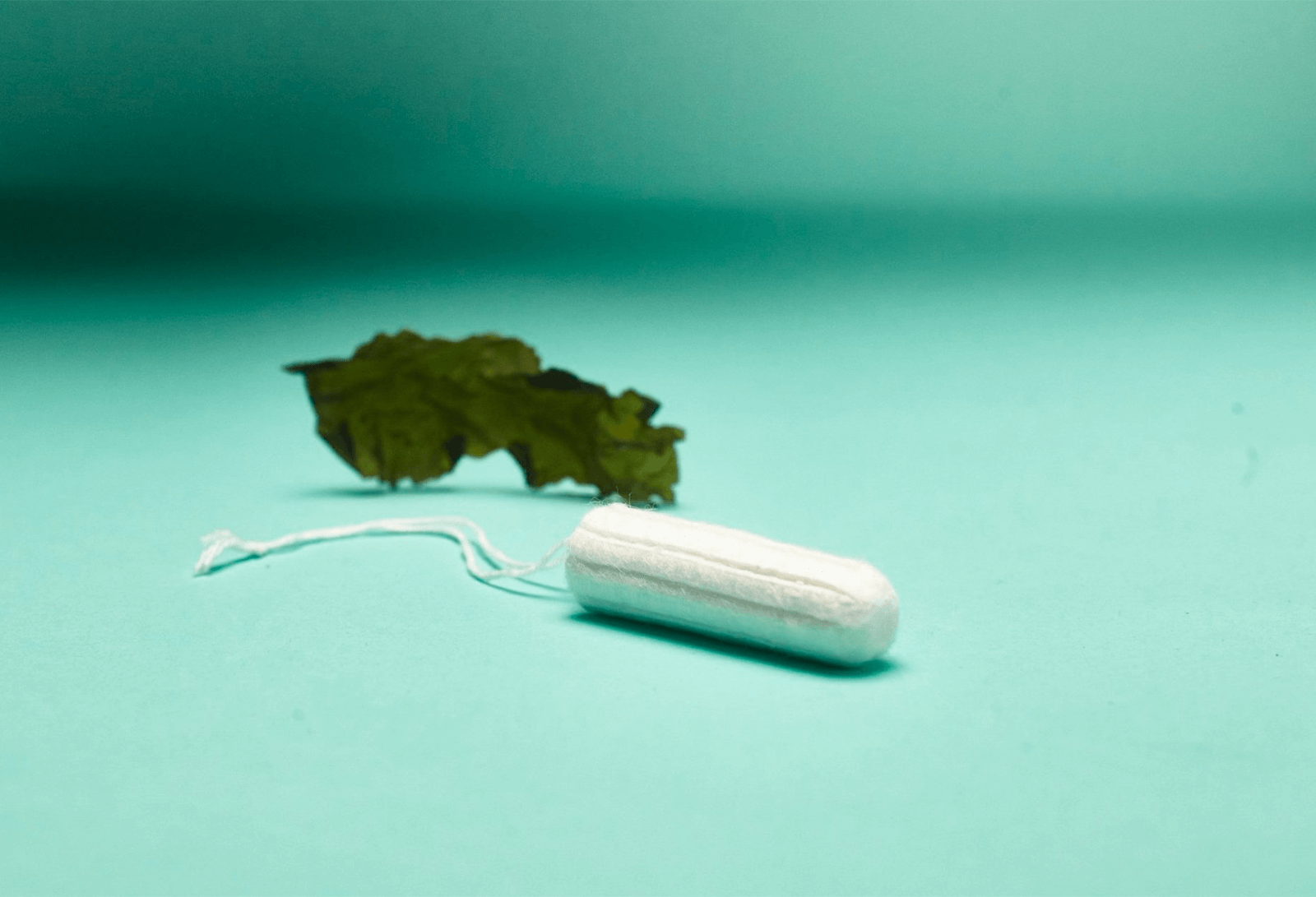
Vyld: Founded in 2021 by certified marine guide Ines Schiller, Vyld is the first tampon made of seaweed. It received pre-seed funding from backers, including The Case for Her and Purpose Ventures in September 2022, to build a commercial prototype. The aim is to make the entire tampon and its packaging from seaweed. Seaweed fibers have traditionally been used in medicinal applications due to their absorbent, hypoallergenic, and anti-inflammatory properties, making it ideal for tampons.The unlikely material is a fast-growing, zero-input-crop, farmed without fresh water, pesticides, fertilizers, or land resources. Also, completely biodegradable, seaweed is thought to have a positive influence on the vaginal microbiome. Currently, in the beta stage of development, Kelpon test packages have reached the test production stage and are expected to hit the market over the next few years.
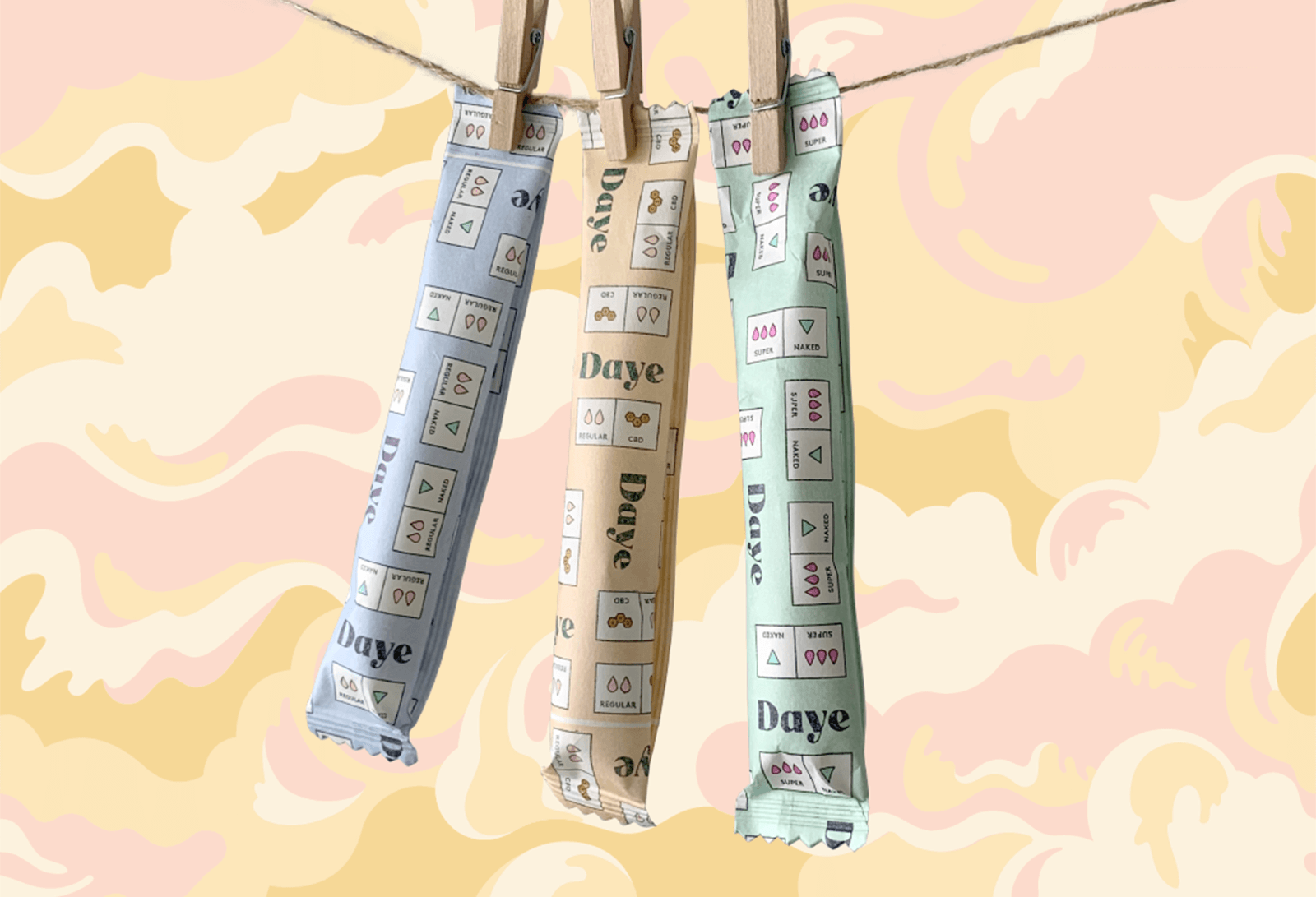
Daye: CBD has become popular in the wellness industry, and Daye has tapped into that popularity to make feel-good CBD tampons made with 100mg of high-potency, pharmaceutical-grade, hemp-derived CBD. The tampons are designed to aid with menstrual cramps and produced with 100% organic and unbleached cotton. Each tampon has been sanitized using gamma rays in order to reduce the risk of toxic shock syndrome. Daye’s wrappers are flushable because they are water-soluble and don’t contain any traces of microplastics, while the applicators are made from renewable sugarcane. The brand also has an online platform discussing all things vaginal health and menstrual cycle-related to create a community around individual menstrual experiences.
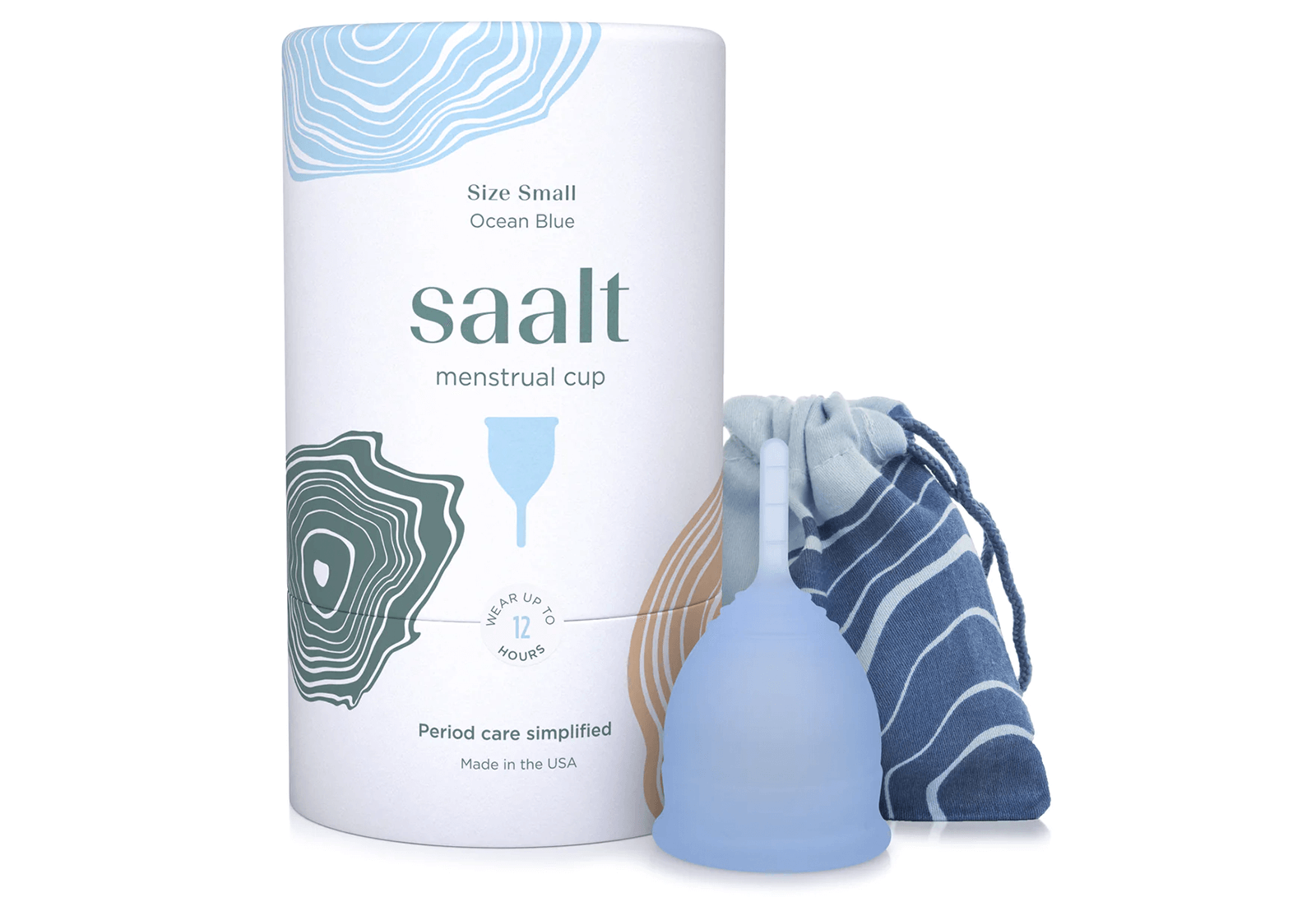
Saalt: Founded in 2018, Saalt focuses on simplifying the menstrual cup process while supporting education and sustainability around periods. The company offers a range of 100% medical-grade silicone cups in different sizes, softness grades, and even a cup model uniquely designed for teens. Consumers can participate in a quiz on Saalt’s website to decipher the size and firmness best suited for their needs. Every Saalt Cup provides 12 hours of protection and can be worn comfortably overnight. Designed to be attractive and welcoming, the cups come in pastel colorways, such as Himalayan pink, light blue, and seafoam green and are accompanied by a patterned cotton pouch for storage. Two percent of all revenue is used to fund initiatives in menstrual health, sustainability, and education. To date, 52,831 Saalt products have been donated to menstruators who are affected by period poverty.